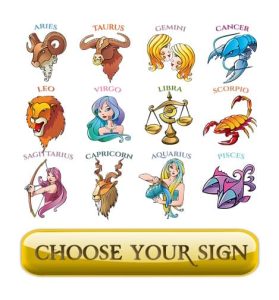You could lose your health and peace of mind if you don’t get enough sleep for a long time. Most people who are stressed or have health problems have trouble sleeping occasionally. People often whine that they don’t get enough sleep or can’t sleep more than seven hours a day because they are too busy, have problems that keep getting worse, or don’t have enough money.
Signs And Symptoms Of Sleep Problems
People who have trouble sleeping often feel tired during the day and move around a lot while they sleep. You might also sleep a lot, wake up at odd times, or stay awake for a long time, even after bed. These are some usual signs of sleep problems:
-
Not being able to fall or stay asleep
-
Being tired all day that won’t go away
-
The need to sleep during the day. There is no sense in the way you’re breathing.
-
Your limbs move while you sleep.
-
Accidental changes to the sleep cycle
-
Anxiety or anger that you can’t explain
-
Depression Not Being Cared For
-
Getting fat fast
-
Bad grades at school or work
Common Sleeping Issues
Psychologists put people with sleeping problems into groups based on the type of problem, how bad it is, and how it impacts the person. Sleep disorders are also put into groups based on how they make people act, how hard it is for them to sleep and wake up at regular times, how hard it is for them to breathe, how they sleep, and how tired they are all the time. Some common types of sleep problems are:
Insomnia
This is the most common sleep trouble if you can’t fall asleep or stay asleep all night. Hunger, hormone issues, jet lag, fear, and stress that won’t go away are all common reasons people can’t sleep. If you don’t get help for your sleeplessness, it could cause:
-
Depression
-
Focusing problems
-
Constant irritation
-
More weight problems
-
lowered work performance
At least three times a week for up to three months, some people may have trouble sleeping. Psychologists call this kind of insomnia chronic insomnia. Insomnia problems that last less than three months are called short-term insomnia problems. People who have trouble sleeping every once in a while can get help for this.
Sleep Apnea
Your body may not get enough air if you stop breathing while you sleep. Doctors believe this is a severe health issue that keeps a lot of people awake at night. People with this condition, sleep apnea, have trouble sleeping because their mouths are blocked or the brain and muscles that control breathing don’t work together correctly.
Different types of sleep apnea are there:
-
Obstructive sleep apnea
-
Central sleep apnea.
Sometimes, you can’t breathe while sleeping, which is called obstructive sleep apnea. This happens when the soft muscles in your throat loosen up. This makes it hard to breathe because your airway gets narrowed or closed. If you have central sleep apnea, on the other hand, your breathing stops by itself while you sleep. This occurs because the nerves in your brain that control your breathing aren’t getting the right messages.
Parasomnia:
While they sleep, some people move and act in strange ways. This kind of trouble sleeping is called “parasomnia,” and these are some of its signs:
-
Sleepwalking
-
Talking in sleep
-
Grunting while asleep
-
Frequent dreams
-
Bedwetting problems
Restless Legs Syndrome
Some people move their legs around a lot while they sleep, which keeps them from getting a good night’s rest. There is another name for RSL: Willis-Ekbom disease. These people have strong urges to move their legs and can feel things in their legs. People who have this disorder experience most of its symptoms every day.
Scientists haven’t been able to figure out what causes this problem, but doctors think it might be connected to ADHD and Parkinson’s disease. As you age, your chances of getting this sickness rise. If this problem isn’t fixed, the signs may worsen, making you sad and worried.
Narcolepsy
Because they are always tired, people with this disease often fall asleep during the day. Sometimes, people with narcolepsy fall asleep when they are exhausted or stressed out. A lot of the time, they also have sleep paralysis, which makes it hard for them to walk when they wake up. People with this disorder have not been linked to a specific health problem, but people with serious nerve diseases like multiple sclerosis have been linked to people with this disorder.
Causes Of Sleeping Issues
These sleeping issues make it hard to sleep often (though not all of them). There are several reasons why people have trouble sleeping, but most of them have to do with their health. These are some of them:
-
A lot of people get colds, asthma, and lung problems.
-
Hormonal problems and illnesses of the urinary tract
-
Extreme discomfort due to continuous headaches, arthritis, persistent lower back pain, and so on.
-
Unexpected worry and stress
-
sleepwalking or sleeptalking habits
How To Treat Sleep Disorders
It takes work to fix all types of sleep troubles simultaneously. Affecting suggests that you make changes to how you live and how you get medical care to get rid of these disorders for good. If you’re having trouble sleeping, the following medicines might help:
-
Sleeping pills that a doctor has prescribed
-
Melatonin supplements are advised.
-
Providing advice on how to handle a cold
-
Prescription drugs for possible health issues
-
Surgery is recommended for people who have sleep apnea.
-
People with problems grinding their teeth are told to wear a mouth guard.
But medical care will only help if you change the things in your life that need to be changed. Here are some of them:
-
Reducing regular sugar intake
-
Eating more fish and vegetables every day
-
Regular exercise and stretching might help reduce your anxiety.
-
Having less water just before bed
-
Less midday and evening coffee and tea may reduce caffeine consumption.
-
Getting fewer individuals to drink and smoke
-
Eating small meals before bed
-
Keeping weight growth under control by running and walking often
Conclusion
Problems sleeping won’t kill you, but they can make your life very uncomfortable by making it hard to think, eat, and do well at school or work. They can also hurt your mental health and overall health. Many people have problems that make it hard to get the long, deep sleep they need to do their best. These include narcolepsy, sleepiness, hypersomnia, restless legs syndrome, parasomnia, and extended sleep phase syndrome, to name a few.















